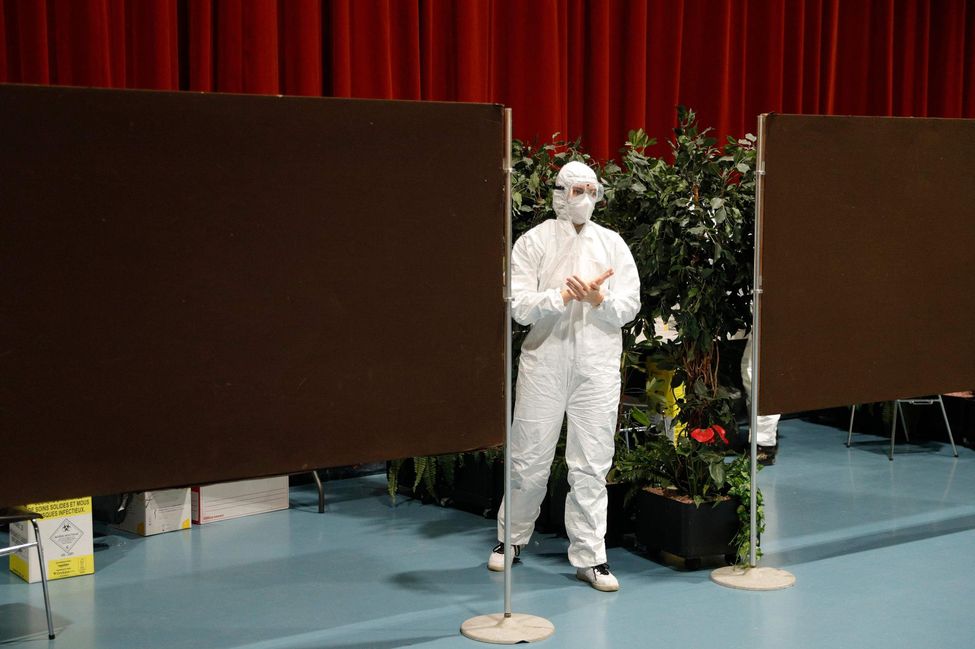COVID-19: PCR Tests and the Detection of Variants – A Comprehensive Guide
The COVID-19 pandemic continues to evolve, with new variants emerging regularly. Accurate and timely detection remains crucial for effective public health management. This article delves into the role of PCR (Polymerase Chain Reaction) tests in identifying COVID-19 and its various strains, offering a comprehensive overview for readers seeking to understand this vital diagnostic tool.
Understanding PCR Tests for COVID-19
PCR tests are considered the gold standard for diagnosing COVID-19. Unlike rapid antigen tests, which detect viral proteins, PCR tests detect the virus's genetic material (RNA). This makes them highly sensitive, capable of detecting even low levels of the virus, particularly in the early stages of infection. The process involves:
- Sample Collection: A sample is typically collected from the nasal or throat using a swab.
- RNA Extraction: Viral RNA is extracted from the sample.
- RT-PCR Amplification: Reverse transcription PCR (RT-PCR) converts the RNA into DNA, which is then amplified millions of times to create detectable levels.
- Detection: Fluorescent markers are used to identify the amplified viral DNA, confirming the presence of the virus.
The results are typically available within 24-48 hours, though this can vary depending on the laboratory's workload and capacity.
PCR Test Accuracy and Limitations
While highly accurate, PCR tests aren't infallible. False positives (a positive result when the person isn't infected) and false negatives (a negative result when the person is infected) can occur, although rates are generally low in well-run labs. Factors affecting accuracy include:
- Sample Quality: Improper sample collection or handling can lead to inaccurate results.
- Viral Load: Low viral loads may be difficult to detect, particularly in the early or late stages of infection.
- Test Sensitivity: Different PCR tests have varying sensitivities, affecting their ability to detect low viral loads.
PCR Tests and Variant Detection
The ability of PCR tests to detect COVID-19 variants depends on the specific primers and probes used in the test. While standard PCR tests generally detect the presence of the virus, some modifications are necessary for optimal detection of specific variants. This is because variants possess mutations that may alter the target sequences used for detection.
Challenges in Variant Detection with Standard PCR Tests
Some mutations may affect the binding sites of the primers or probes used in standard PCR tests. This can lead to false-negative results, making it seem like the person is not infected when they actually are carrying a specific variant.
Advanced PCR Techniques for Variant Detection
To address these challenges, researchers are continuously developing and refining PCR tests and employing advanced techniques such as:
- Next-Generation Sequencing (NGS): NGS provides a more comprehensive analysis of the viral genome, enabling the identification of even minor mutations associated with specific variants.
- Targeted PCR Assays: These assays are designed to specifically target mutations unique to particular variants, increasing the accuracy of detection.
The Importance of PCR Testing in Pandemic Management
PCR testing plays a crucial role in various aspects of COVID-19 management:
- Diagnosis and Treatment: Accurate diagnosis guides appropriate treatment and isolation strategies.
- Surveillance and Outbreak Monitoring: PCR testing helps track the spread of the virus and identify emerging variants.
- Public Health Measures: Testing data informs public health policies, such as travel restrictions and social distancing measures.
Conclusion
PCR testing remains a cornerstone of COVID-19 diagnostics and pandemic management. While challenges exist in detecting specific variants, ongoing advancements in PCR technology and the development of targeted assays continually improve accuracy and efficiency. Staying informed about the latest developments in PCR testing and its role in variant detection is vital for both healthcare professionals and the public.
Disclaimer: This information is for educational purposes only and should not be considered medical advice. Consult a healthcare professional for any health concerns or before making any decisions related to your health or treatment. For the latest information on COVID-19, refer to the resources of the World Health Organization (WHO) and your local health authorities.
